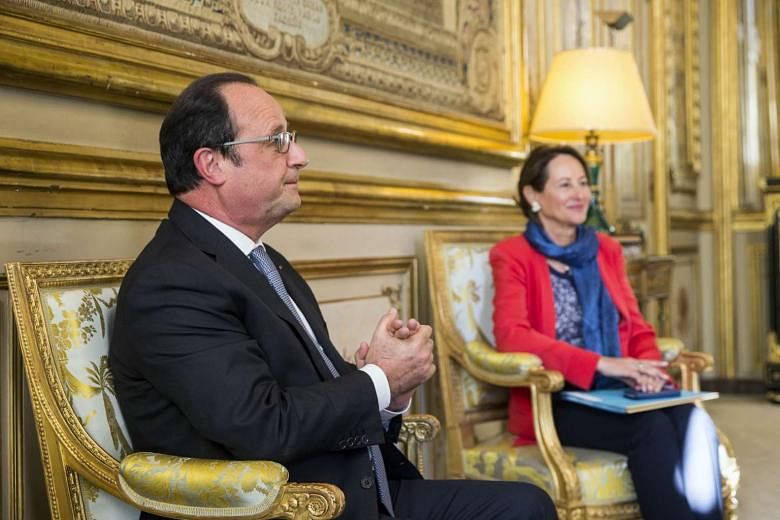BONN, Germany(Thomson Reuters Foundation) - The Green Climate Fund, which is due to deliver billions of dollars to help poorer nations deal with climate change in the coming years, is aiming to allocate money to a first set of projects in November, ahead of a major UN climate conference in Paris.
Héla Cheikhrouhou, executive director of the fund, told journalists she hoped some proposals would be approved by its board at a meeting in Zambia from Nov 2 to 5.
"It is good that we are starting with a manageable number of projects that are fully prepared and appraised, and ready for an investment decision," she said.
The board will consider eight proposals, which would require a total of $168 million in funding. They were selected from 37 proposals submitted since July.
Those chosen in the first round have a wide range of objectives, from protecting Peruvian wetlands and developing an energy-efficiency green bond for Latin America to expanding the use of climate information and early warning systems in Malawi, and managing water shortages in the Maldives.
Cheikhrouhou noted that 83 per cent of total funding sought by the eight proposals was for action in the most vulnerable developing countries, including small island states and African nations.
Around two-thirds of the money was intended to support plans to adapt to climate change impacts, and some three-quarters had been requested in the form of grants, she added.
The prominence of projects to help the poorest cope with climate change "is testimony to the fact that adaptation finance in the developing world is suffering from a backlog in terms of availability of sources of finance and lack of international funding," she told a meeting at UN climate talks in Bonn.
A recent report on climate finance from the Organisation for Economic Co-operation and Development (OECD) and the Climate Policy Initiative showed that just 16 per cent of $114 billion in climate finance delivered to developing nations over 2013 and 2014 was allocated purely for adaptation measures.
A further 7 per cent went to projects supporting both adaptation and efforts to cut emissions.
"It's a positive signal that many of the initial projects to be considered by the (Green Climate Fund) board are grant-based adaptation projects," said Brandon Wu, a policy analyst with ActionAid USA.
"This trend should extend into the future - addressing the historical imbalance between mitigation and adaptation finance." The Green Climate Fund, set up at UN climate talks in 2010, plans to allocate half its funds for adaptation and at least half of that money to the most vulnerable countries.
Aid agencies have long called for more balance in climate finance, most of which goes to renewable energy and energy efficiency projects.
Some, including development charity Oxfam, are pushing for a target on public finance for adaptation in a new global climate change deal due to be agreed in Paris in December.
"The reality is that developing countries require climate financial resources, technology transfer and capacity building both now and far into the future - in some case just to survive, let alone make the transition to the 'low carbon economy'," said Nozipho Mxakato-Diseko, the South African chairperson of a group of 134 developing nations at the talks in Bonn.
'NOT A TASK FOR PEANUTS'
Climate finance is proving a big sticking point in the negotiations, amid disagreement over which countries should provide it and how much it should increase beyond 2020, a deadline for mobilising $100 billion annually for poorer nations.
Cheikhrouhou said she thought US. Republican politicians, who have held up Washington's $3 billion pledge to the Green Climate Fund, would come round when they saw the money was going to investments in things like improved energy access, food security and protecting the livelihoods of vulnerable people, in line with their priorities.
The Green Climate Fund board will discuss how to tap sources of money other than government treasuries next year, she added.
At the Zambia meeting, it also will talk about a major replenishment of its initial resources of $10 billion, possibly in 2017.
The mandate of the fund is to make an ambitious contribution to keeping global temperature rise below 2 degrees Celsius, she noted. "That is not a task for peanuts, so this is why we need to be very creative and innovative in mobilising and attracting financial resources," she said.

